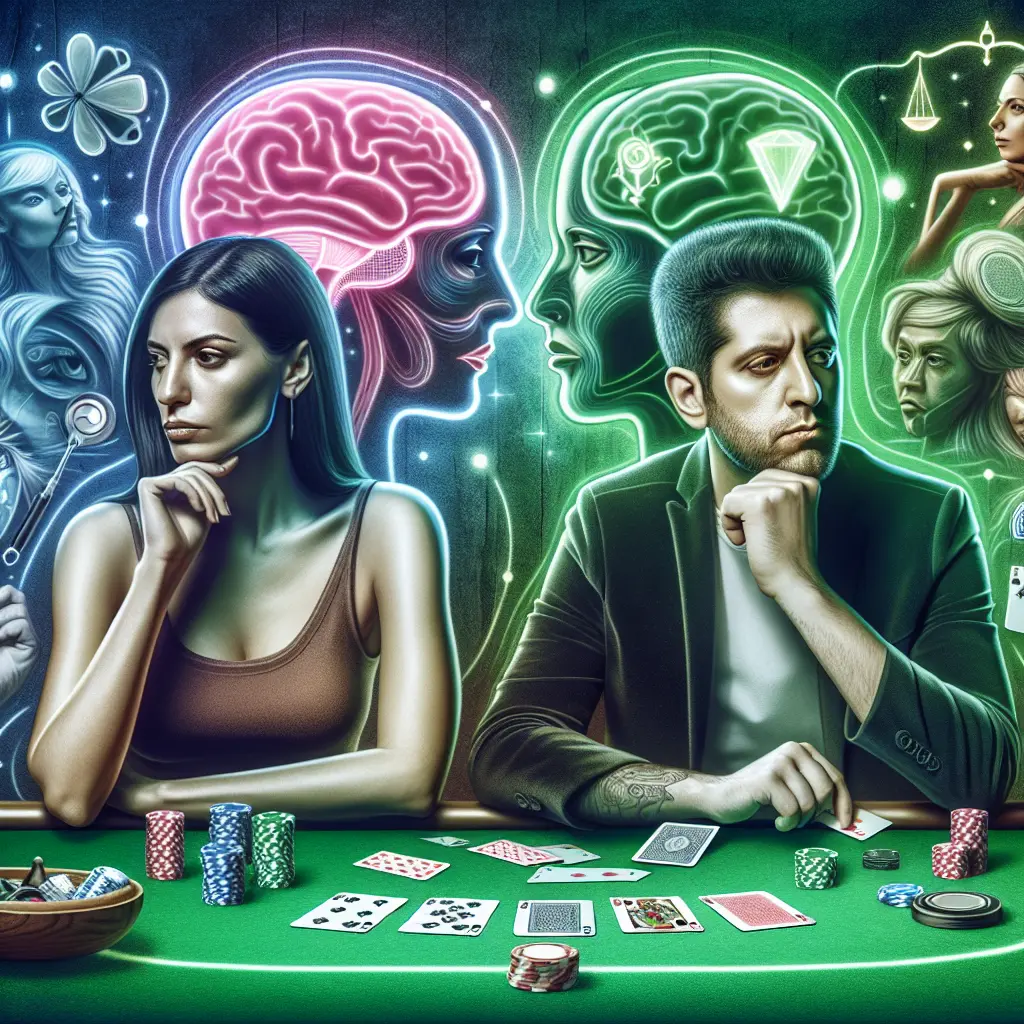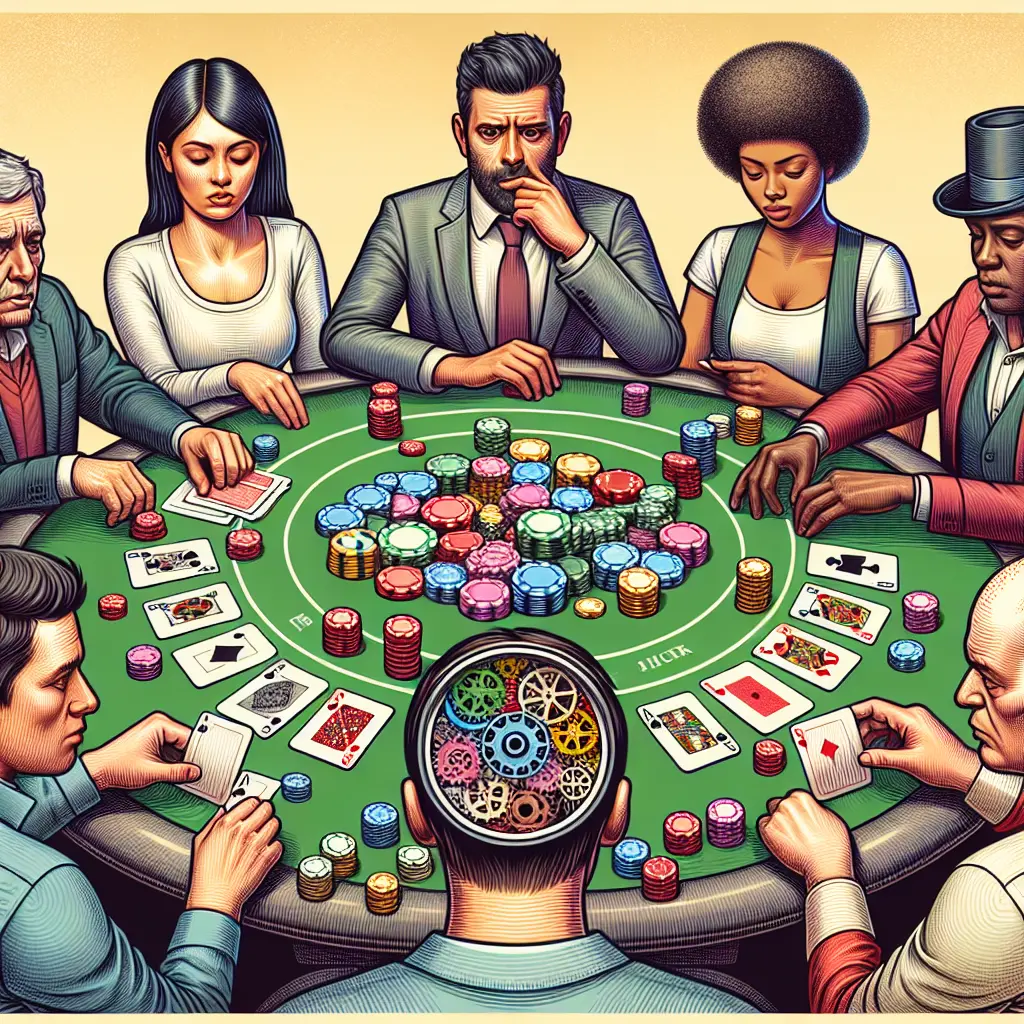The world of poker is not just about the cards you're dealt but also heavily revolves around the psychological warfare that ensues on the green felt. In this article, we'll delve deep into the psychological aspects of poker, exploring how mental acuity, emotional control, and strategic thinking dictate success in this intellectually rigorous game.
Poker is a game that combines skill, strategy, and psychological insight. The mental game of poker involves understanding your own psychological state and that of your opponents. Players must develop a robust poker player mindset, which includes patience, resilience, and the ability to make decisions under pressure. The cognitive skills in poker also encompass quick thinking, probability assessment, and risk management.
One of the most critical elements in poker psychology is emotional control. The swings in poker can be dramatic and sudden, and how players handle these swings can significantly affect their performance. Emotional control in poker is not just about keeping a poker face but also managing frustration, excitement, and tilt (a state of emotional frustration or confusion). Emotional stability helps in maintaining a clear mind and making rational decisions.
Every hand in poker demands a series of decisions: to bet, call, raise, or fold. Poker decision-making is heavily influenced by psychological strategies in poker. It's about more than just the cards; it's about reading people, understanding betting patterns, and predicting opponents' moves. A recent update that will excite poker enthusiasts is the planned major gameplay update for Balatro in 2025. This update promises to enhance user experience and could potentially introduce new strategic elements to the game.
The cognitive skills required in poker are vast and varied. Players need to process information quickly and efficiently. Recent guides like the "What is a Straight in Poker?" and "What is a Flush Poker Hand?" provide foundational knowledge that helps beginners understand basic hand rankings which are crucial for effective decision-making. Advanced players continually study scenarios and probabilities to refine their strategic approach.
Psychological Strategies in Poker
Implementing psychological strategies in poker can provide a significant edge over opponents. Techniques such as bluffing, semi-bluffing, and varying play style are commonly used to confuse and manipulate the opposition’s perception. Understanding behavioral psychology in poker can help in identifying patterns or tells in opponents’ behavior, thus informing more strategic plays.
The mindset with which a player approaches the game can often be the deciding factor between winning and losing. Successful players like Jonathan Tamayo, who recently won the World Series of Poker and $10m prize money, exemplify the importance of a strong mental framework characterized by discipline, focus, and endurance.
Behavioral psychology plays a significant role in understanding and predicting human behavior at the poker table. For instance, the concept of a "slow roll" — deliberately delaying showing one's winning hand to frustrate an opponent — is an aspect where psychological warfare comes into play. An understanding of such tactics and how to counter them is crucial as discussed in the guide on how to avoid slow rolls.
Several psychological tips can help poker players improve their game:
Psychological Tips for Poker Players
- Stay Patient: Patience helps in waiting out bad spells and capitalizing on good hands.
- Read Your Opponents: Pay attention to body language, betting patterns, and even verbal cues.
- Manage Bankroll Wisely: Keep emotions regarding winning and losing separate from financial decisions.
- Keep Learning: Stay updated with poker guides and updates like the upcoming Jacks or Better Video Poker Guide for 2024.
The poker world is continually evolving with new strategies and technological advancements. The Roku Sports Channel launching on August 12 may include streaming of live poker events providing fans access to watch live games and learn from professionals. Additionally, updates from the Rosemary’s Baby prequel might not directly influence poker but show how mainstream media continues to engage with gambling themes, possibly influencing popular perceptions of poker.
Poker is not just a game of luck but a complex interplay of psychological dynamics. Mastering the psychological aspects of poker—from understanding basic hand ranks like three of a kind to employing advanced emotional control techniques—can transform mediocre players into masters of the game. As we look forward to major updates like Balatro's gameplay enhancement, staying informed and mentally sharp will undoubtedly be beneficial.
As we shuffle up and deal with both the challenges and thrills poker brings, remember that the greatest asset you hold is not just in your hands, but also in your mind.
Cheers to playing smart,







Leave a Comment